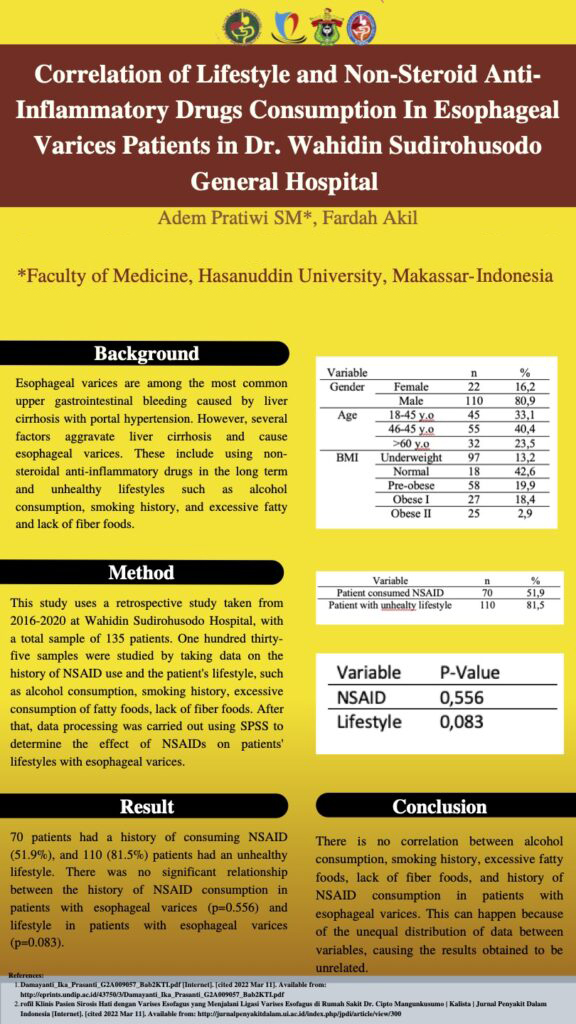
Correlation of Lifestyle and Non-Steroid Anti-Inflammatory Drugs Consumption In Esophageal Varices Patients
Adem Pratiwi SM*, Fardah Akil
*Faculty of Medicine, Hasanuddin University, Makassar-Indonesia
*Corresponding Author: adempratiwi18@gmail.com
ABSTRACT
Background: Esophageal varices are among the most common upper gastrointestinal bleeding caused by liver cirrhosis with portal hypertension. However, several factors aggravate liver cirrhosis and cause esophageal varices. These include using non-steroidal anti-inflammatory drugs in the long term and unhealthy lifestyles such as alcohol consumption, smoking history, and excessive fatty and lack of fiber foods.
Methods: This study uses a retrospective study taken from 2016-2020 at Wahidin Sudirohusodo Hospital, with a total sample of 135 patients. One hundred thirty-five samples were studied by taking data on the history of NSAID use and the patient’s lifestyle, such as alcohol consumption, smoking history, excessive consumption of fatty foods, lack of fiber foods. After that, data processing was carried out using SPSS to determine the effect of NSAIDs on patients’ lifestyles with esophageal varices.
Results: 70 patients had a history of consuming NSAID (51.9%), and 110 (81.5%) patients had an unhealthy lifestyle. There was no significant relationship between the history of NSAID consumption in patients with esophageal varices (p=0.556) and lifestyle in patients with esophageal varices (p=0.083).
Conclusion: There is no correlation between alcohol consumption, smoking history, excessive fatty foods, lack of fiber foods, and history of NSAID consumption in patients with esophageal varices. This can happen because of the unequal distribution of data between variables, causing the results obtained to be unrelated.
Keywords: esophageal varices, lifestyle, NSAID.
